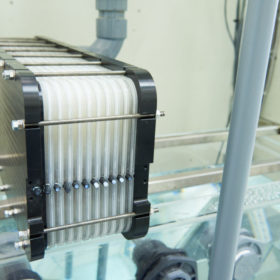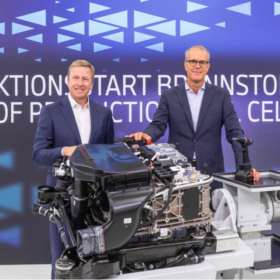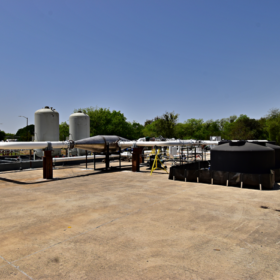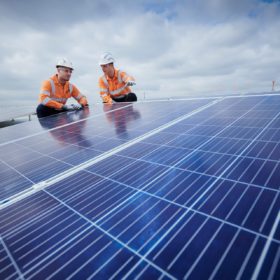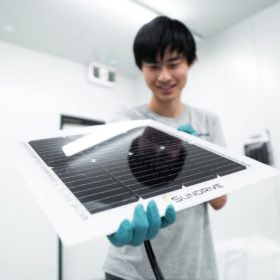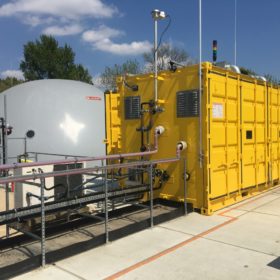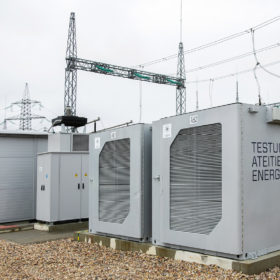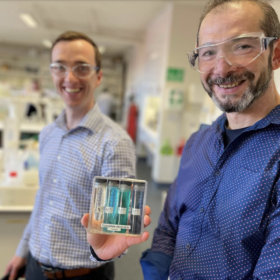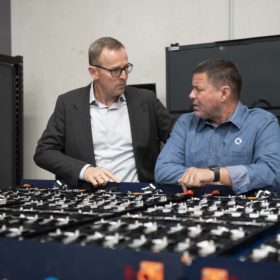Zinc8 to manufacture its first zinc-air batteries in US market
Canadian battery developer Zinc8 Energy Solutions has announced plans to begin battery production in the United States, incentivised by manufacturing production credits in the US Inflation Reduction Act.
BMW starts in-house production of fuel cells for iX5 Hydrogen
BMW Group said it is targeting the premium segment with its iX5 Hydrogen car, Topsoe revealed that it will invest US$267 million (AU$392m) to build the world’s largest SOEC electrolyzer plant in Denmark, and Bosch announced plans to invest US$200 million (AU$292m) in US fuel cell production.
Pumped heat energy storage seeks to demonstrate commercial readiness
Southwest Research Institute (SwRI) has commissioned a first-of-its-kind pilot plant pumped heat energy storage demonstration facility with tech from US startup Malta. Its 10-150+ hour energy storage technology is said to be applicable in a range of grid-scale applications.
Countrywide teams with Wirsol on solar-to-hydrogen opportunities
Aspiring green hydrogen manufacturer Countrywide Hydrogen will explore solar-to-hydrogen co-development opportunities in the island state of Tasmania after inking a deal with large-scale solar PV and battery energy storage specialist Wirsol Energy, which already operates a portfolio of Australian projects with a combined capacity of more than 720 MW.
SunDrive achieves 26.41% efficiency with copper-based solar cell technology
Australian solar technology company SunDrive continues to impress with its copper-based solar cell technology, achieving 26.41% efficiency for a full-size silicon cell using mass-production compatible heterojunction technology.
Enphase partners with Home Connect to manage home appliances from single app
Integrated clean home energy and smart appliances platform lets users run appliances on battery-stored solar energy in pre-determined time frames.
Hydrogen bromide flow battery for large-scale renewables storage
Dutch startup Elestor has secured funds to bring its hydrogen bromide (HBr) flow battery technology closer to commercial production. It said the system could achieve a levelised cost of storage below US$0.05/kW.
Weekend read: Dawn of virtual transmission
Quick and versatile, batteries are providing a growing number of services to homes, businesses, and on the grid. Electricity network operators are beginning to adopt grid-scale batteries, with the initial applications potentially opening the way for renewable energy to flow more freely and across larger distances than ever before.
Vanadium flow battery electrolyte focus of three year industry-backed study
West Australian company Technology Metals Australia, or TMT, will work with the government-backed Future Battery Industries agency to develop enhanced electrolytes for vanadium redox flow batteries. TMT will provide both the feedstock for the research as well as funding and hopes to eventually leverage the project’s findings.
Energy Renaissance moves ahead with battery giga-factory
Australia’s first lithium-ion battery giga-factory is expected to begin operations soon with battery manufacturer Energy Renaissance announcing the successful completion of a $1.47 million pilot program designed to develop and test its manufacturing processes, systems and plant design.
